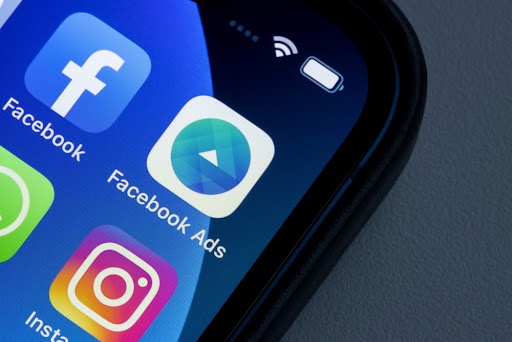Brand awareness is all about a consumer’s familiarity with your brand; a plainly important component of every marketing strategy. Every business wants to be top of mind for potential customers when they start making purchase decisions – well-thought out brand awareness strategies will get you there.
While sales activation focuses on existing demand and generates those all-important sales in the short term, brand building looks to create demand and grow awareness of what you have to offer. It’s important to remember that brand awareness should be considered alongside other metrics such as brand salience (the propensity of your brand coming to mind in buying situations), and customer perception of your brand, but a focus on growing and measuring brand awareness will give you the best chance at standing out from competition.
Our top brand awareness strategies for small businesses are as follows:
- Implement an effective content strategy with SEO in mind
- Invest in Paid Search
- Build a strong social media presence
- Team up with other businesses
- Dial up your influencer marketing efforts
- Launch a referral scheme
- Use events to help you stand out from the crowd
- Make the most of promotional products and services
1. Implement an effective content strategy with SEO in mind
Content is the key message that a company is trying to communicate to its audiences. This can take many different forms, address multiple types of audiences and produce various outcomes for a business. When it comes to brand awareness, quality content is a very powerful weapon to get that “foot in the door” and increase the level at which customers are familiar with your business, products, or services. Our “How to develop a content strategy” post provides a great starting point if you want some guidance.
Make sure your content strategy works in tandem with your SEO efforts so you can maximise effectiveness. As you increase your organic visibility for non-branded terms, more and more potential customers will get to know your brand which, with time, will also increase search volumes for your branded terms too.
The easiest way for any small business to get started is to avoid those high-traffic terms that are highly competitive and will take a long time to rank for. Instead, focus on long-tail terms which are less competitive and have lower traffic volumes. With this approach, a large volume of these long-tail keywords will equal the higher traffic counterparts and will take a lot less time to rank for.
2. Invest in paid search
Organic visibility is likely to take a while to really take off so, in the meantime, you may want to consider investing in paid search. If you’re just starting out or your brand awareness is really low, you are likely going to have to start by targeting non branded terms, just like you would with SEO. Think hard about what your target segments are searching for when they need your product or service and incorporate these keywords into your campaigns. Going after competitor keywords can also work very well at this stage. As you start to attract visitors to your website, you’ll also begin to see more and more potential customers searching for your company.
3. Build a strong social media presence
Alongside organic activity and paid search, let’s not forget social media advertising. Social media advertising is not a new strategy for brand awareness. However, it has seen continual improvement in making it a cost-effective strategy. The biggest improvements have come from the detailed targeting methods that are now available, meaning you can drill-down to the exact target audience you’d like to show your ads to. Our post on Meta advertising tips will help you understand how these advertising platforms can help you reach target customers.
4. Team up with other businesses
Partnerships are often one of the most successful and cost effective ways for small businesses to grow their brand and expand their reach. While you may know your competitors well, creating powerful partnerships means collaborating with other businesses that have a similar audience to you but sell a different product or provide another service. Partnerships can take many different forms, ranging from point of sale placements and charity events to product offers and digital advertising.
Once you’re ready to get started, you can try to engage in a direct dialogue with the marketing team of the business in question, utilise mutual contacts, or ask your marketing agency to reach out on your behalf. Have a persuasive pitch ready that demonstrates how the partnership you’re proposing will benefit both brands and you’ll be off to a great start.
5. Dial up your influencer marketing efforts
Convinced that influencer marketing is only for large businesses? Think again. Working with influencers is a brand awareness strategy that any business can use, no matter how small. What the partnership looks like is completely up to you and the influencers you are collaborating with. Many small businesses use influencer marketing for giveaways and discounts, while others work with influencers by naming them brand ambassadors, who directly promote a brand and its products to their network.
Influencer marketing will not only help you spread the word about your brand and what you do, but it will also help you build trust with prospective customers. An influencer with a great reputation who shares and interacts with their followers is often seen as a credible source of information. If they endorse your brand, many of their followers will be inclined to follow suit.
6. Launch a referral scheme
There’s no doubt about it. The best advocates of your brand will always be your loyal customers. People just love telling others about their experiences with a company.
Launching a referral scheme is a fantastic way to make current customers feel appreciated for spreading the word about what makes you a great business.
All you have to do is offer currently engaged customers an incentive to tell their friends, family and colleagues about your products or services – this can be in the form of a discount or something you give away for free. Do the sums right and this will be a great way to boost both brand awareness and sales without breaking the bank.
7. Use events to help you stand out from the crowd
From major community events to small informational meet-ups, events are a great way to engage your target audience and increase brand awareness for your small business.
Whether you decide to host an event yourself or take part in a bigger one organised by a third party, focus on spreading your key message and showing the human side of your business. Use it as a chance to demonstrate that your business is much more than just what it sells.
The huge increase in popularity of online events (such as webinars) during the pandemic isn’t slowing down anytime soon, and there are still plenty of opportunities for all types of small businesses to ride this wave. You can even partner with other related businesses to co-host events. Just keep showing up for your customers, keep offering value and showing your expertise. This will build mental availability that’ll keep you front of mind when they’re ready to buy.
8. Make the most of promotional products and services
Promotional products are another traditional, yet very effective, brand building strategy that any small business can use. People love a freebie, and even more so when the recipient finds it useful, boosting brand awareness further via word of mouth.
Depending on the type of business, you might also want to consider free samples and tasters. While customers may not be ready to buy there and then, promotional activity of this kind will increase your chances of being top of mind once they’re back in the market.
The main takeaway: track your brand building efforts
An increase in brand awareness will eventually lead to an increase in revenue and market share. Sales aside, there are various ways in which you can measure brand awareness, varying in complexity, cost, reliability and accuracy. At a very basic level, we recommend small businesses to keep an eye on website performance and search interest, with a particular focus on direct traffic (data available from Google Analytics) and traffic coming from branded terms (data available from Google Search Console). Over time, we’d also recommend taking a look at how many searches are being carried out for your brand name over on Google Trends.
No matter how small your business, brand building is key to any organisation for long term growth and if you liked this post, you might also want to check out our 10 digital marketing tips for small businesses.
Should you need a hand implementing your own brand awareness strategies, reach out and we’d be happy to help.





